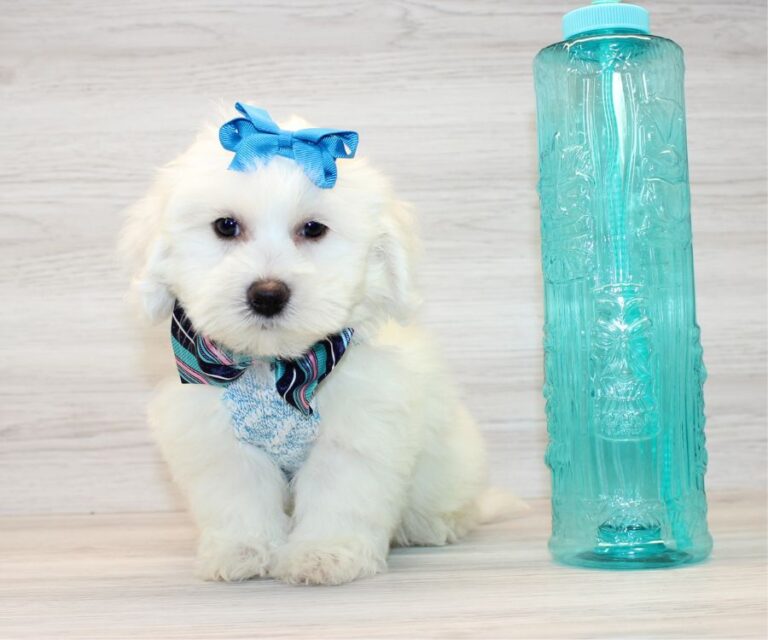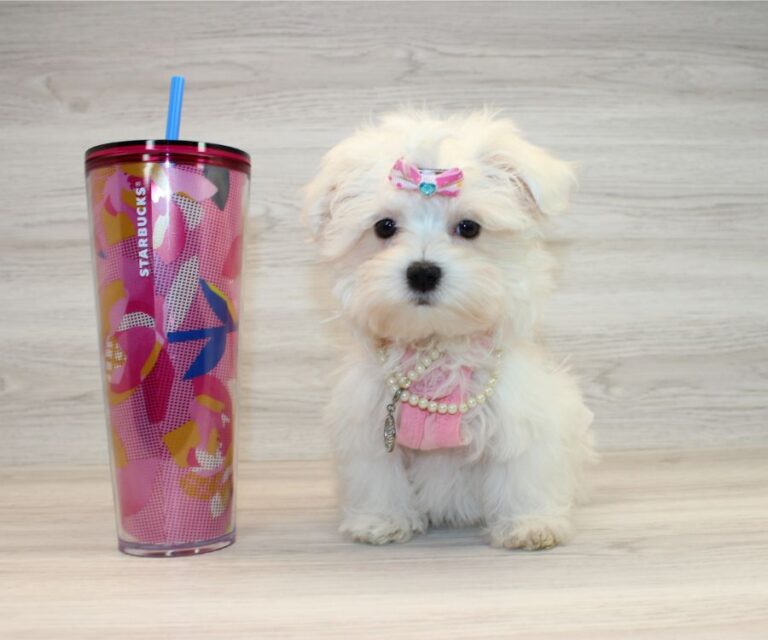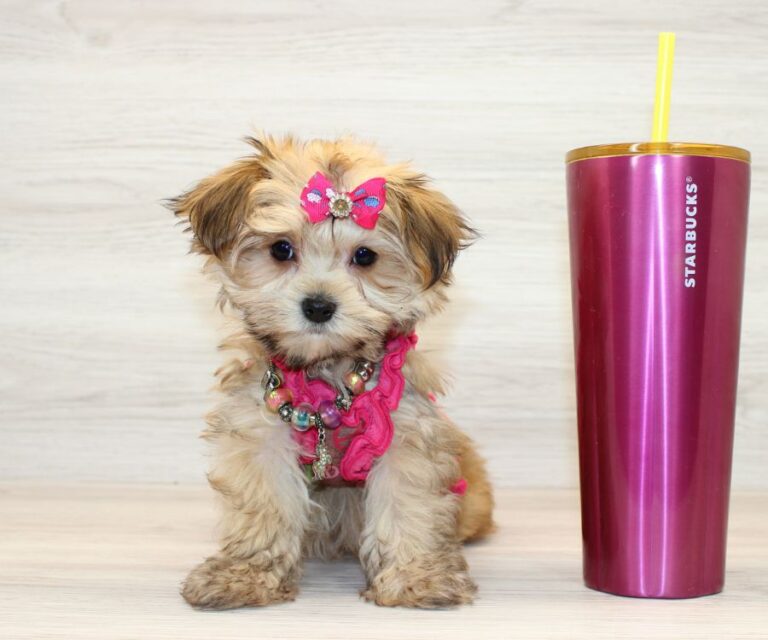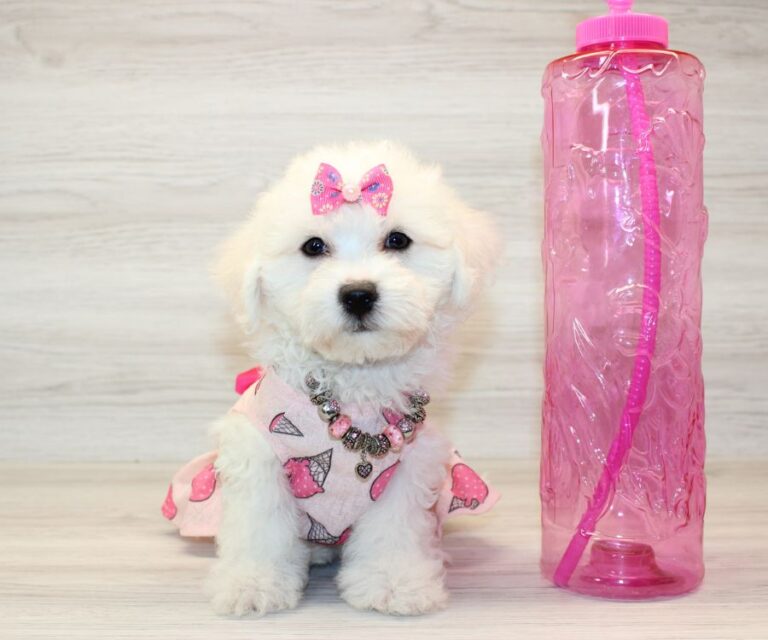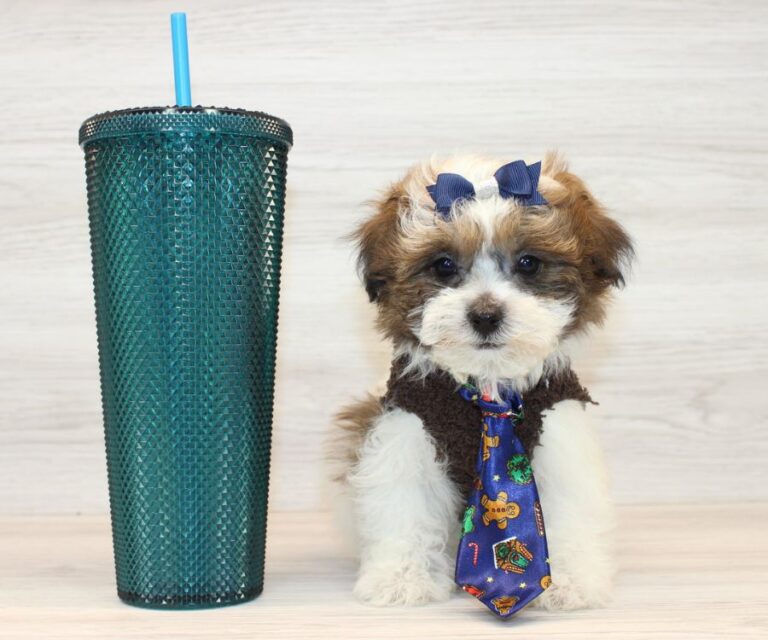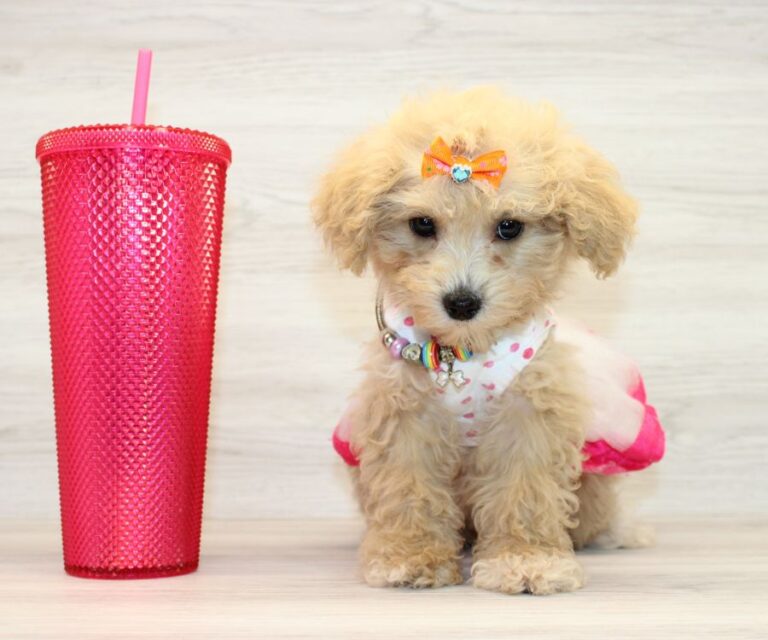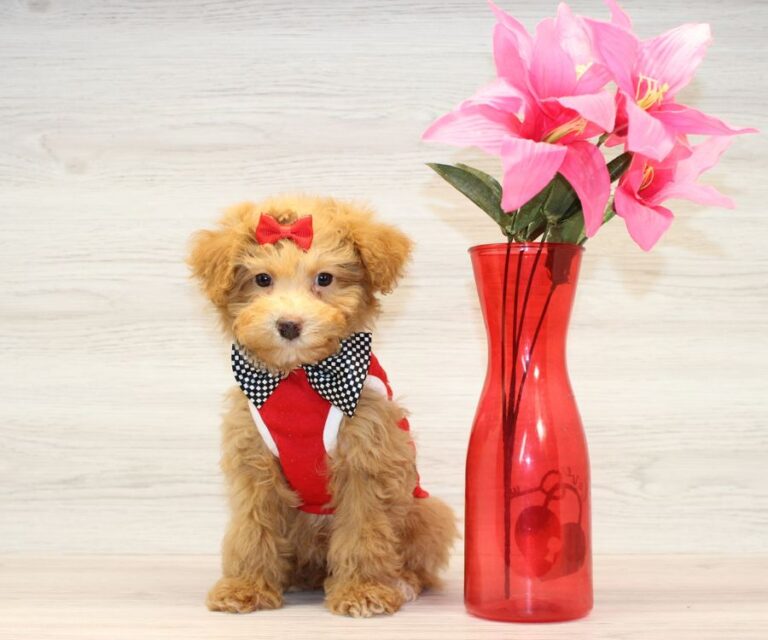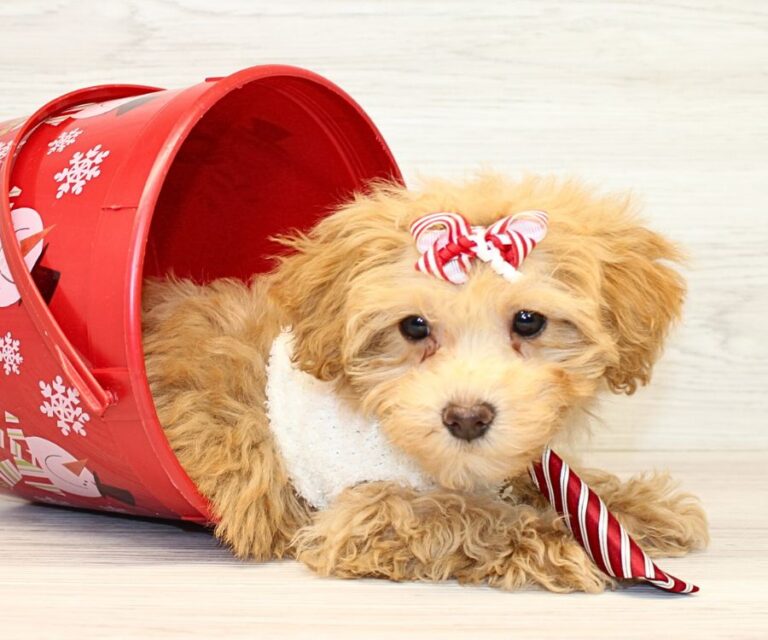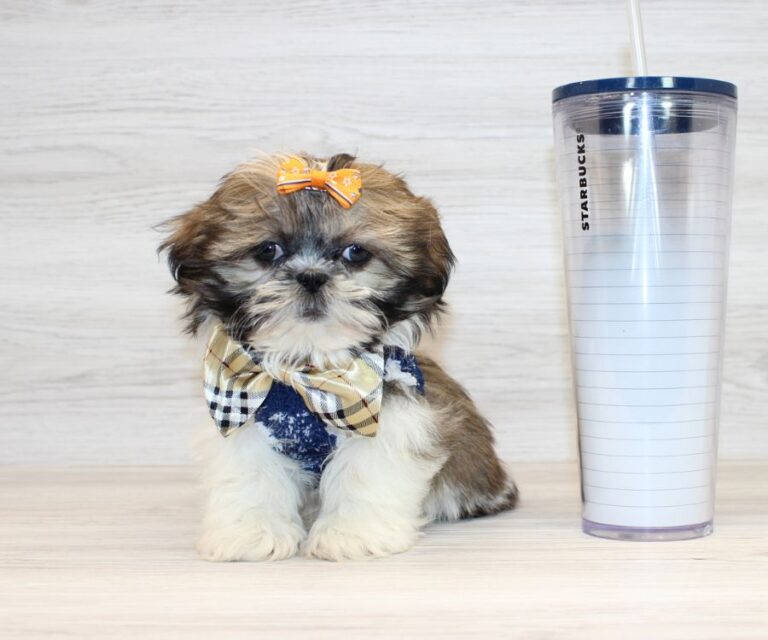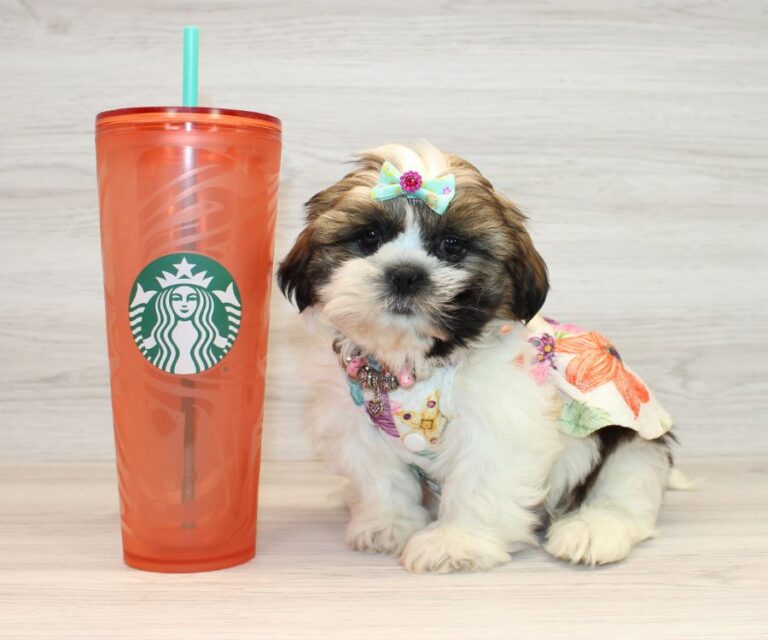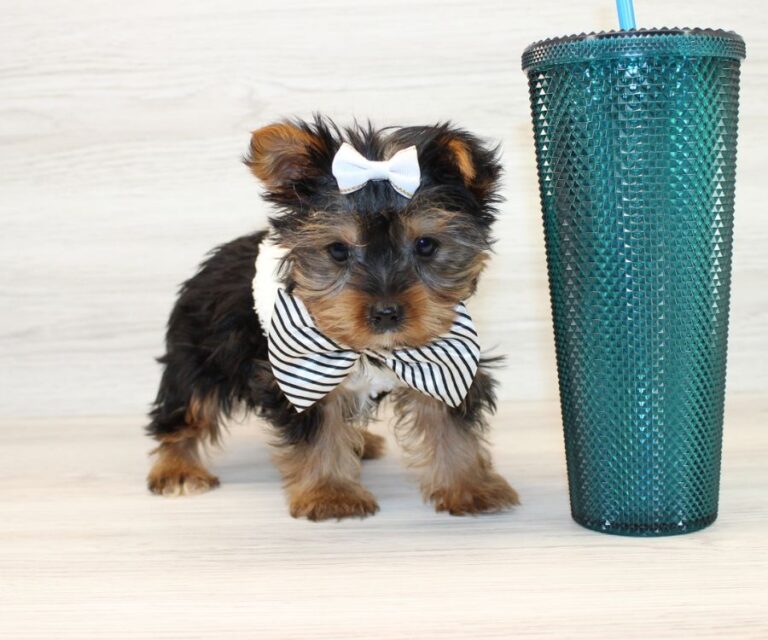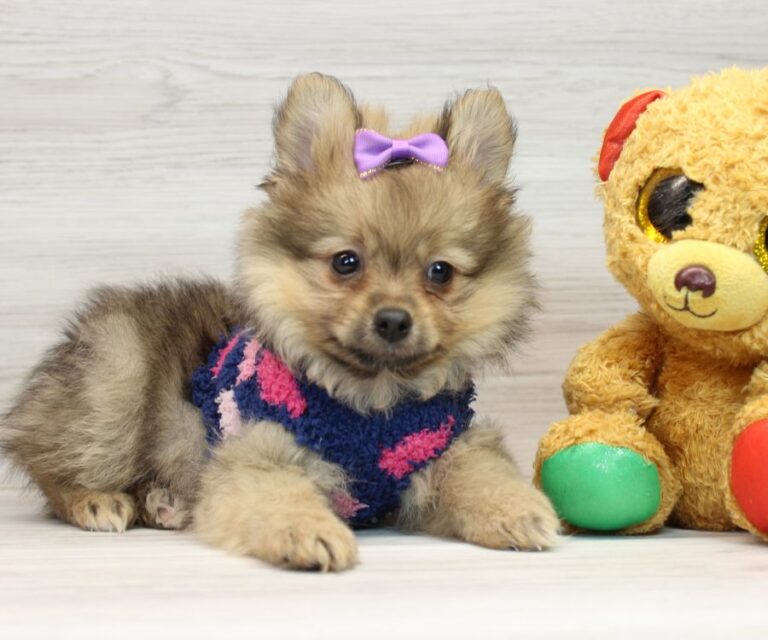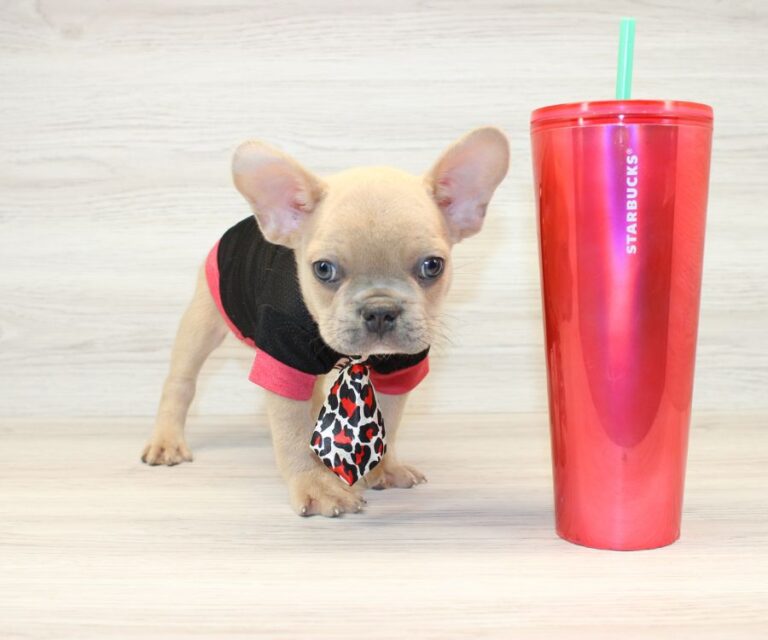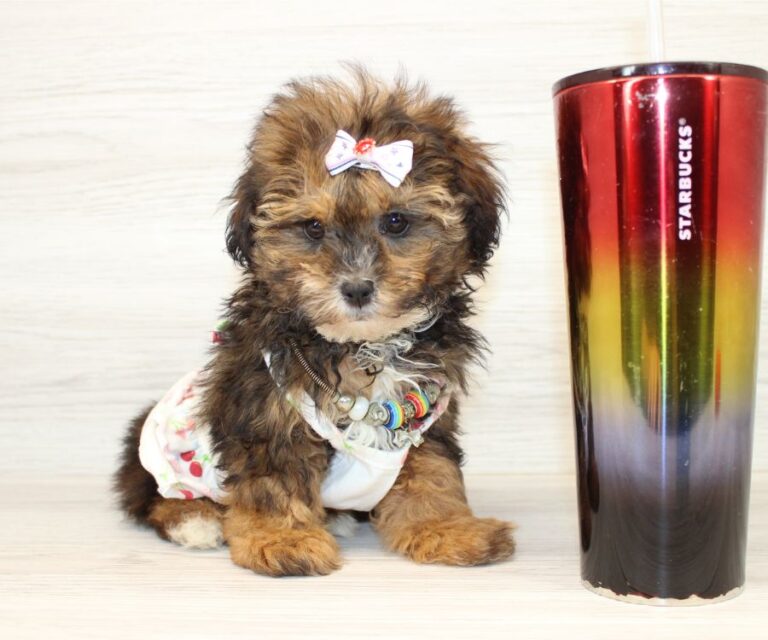At Puppyheaven.com in Rancho Cucamonga, CA, you’ll find an array of toy and teacup puppies tailored for your lifestyle. It’s important to evaluate each puppy’s temperament, energy level, and inherent disposition to make sure they fit into your daily routine. Remember, teacup breeds require meticulous grooming due to their delicate skin and need consistent, early socialization to develop well-rounded behaviors. These breeds often face specific health concerns, including hypoglycemia and respiratory issues, mandating a strict vaccination schedule starting from 6-8 weeks. Choosing the right pup involves understanding these critical care details. Explore further, and you’ll discover deeper insights into ensuring your puppy’s health and happiness.
Choosing Your Perfect Puppy
When selecting your perfect puppy, it’s important to consider both the breed’s characteristics and your lifestyle to ensure a perfect match. Understanding puppy personality and breed temperament is essential in making an informed decision that aligns with your ability to provide care, attention, and a suitable environment.
Puppy personality varies greatly across different breeds. For instance, some puppies might be naturally exuberant and sociable, ideal for families with children or active individuals. Others may be more reserved or independent, better suited for quieter homes or those with less space. It’s important to assess whether a puppy’s energy level and inherent disposition complement your daily routine and living arrangements.
Breed temperament, on the other hand, offers a broader view of predictable behaviors and traits established over generations. These traits can include the breed’s typical interaction with other pets, its threshold for noise and chaotic environments, and its need for mental and physical stimulation. For example, toy and teacup breeds often require gentle handling and are sensitive to colder temperatures, necessitating a protective and attentive approach to their care.
Health and Vaccination Information
When selecting a toy or teacup puppy in Rancho Cucamonga, CA, it’s important you’re aware of their specific health and vaccination needs. Your puppy’s vaccination schedule is vital to prevent serious diseases such as parvovirus and rabies, and should be strictly followed as recommended by your vet.
Additionally, these small breeds often face common health concerns, including hypoglycemia and respiratory issues, which require vigilant monitoring and prompt veterinary care.
Vaccination Schedule Essentials
Ensuring your toy or teacup puppy receives their vaccinations on schedule is essential for their long-term health and immunity.
It’s vital to dispel common puppy immunization myths, such as the belief that smaller breeds need fewer vaccines. In fact, all puppies, regardless of size, require a full series of vaccinations to protect against serious diseases.
Additionally, vaccine storage safety is paramount; vaccines must be stored at correct temperatures to maintain efficacy. Your vet will follow a precise schedule, typically starting vaccinations at six to eight weeks of age, with boosters every three to four weeks until the puppy is around 16 weeks old.
Adhering to this regimen ensures optimal protection for your new companion.
Common Health Concerns
In addition to vaccinations, toy and teacup puppies often face specific health challenges that require careful attention and regular veterinary check-ups. You’ll need to be vigilant about their genetic predispositions and breed specific ailments. For instance, these diminutive breeds frequently suffer from hypoglycemia due to their smaller body mass and higher metabolic rates. Monitoring their diet closely is important.
Additionally, they’re prone to dental issues because of their compact jaw structures, necessitating regular dental assessments. Keep in mind, congenital heart defects and luxating patellas are also more prevalent in these breeds. To safeguard their health, make sure they receive thorough screenings during vet visits. This proactive approach helps in managing potential complications, ensuring a healthier life for your petite companions.
Puppy Training Essentials
As you start training your toy or teacup puppy, it’s vital to focus on basic commands such as ‘sit’, ‘stay’, and ‘come’.
Housebreaking your puppy requires consistent scheduling and positive reinforcement to develop proper bathroom habits.
Additionally, early socialization techniques are essential, exposing your puppy to various environments, sounds, and people to foster well-adjusted behaviors.
Basic Commands Training
Teaching your puppy basic commands, such as ‘sit,’ ‘stay,’ and ‘come,’ is vital for their safety and your peace of mind. Integrating these commands during puppy playtime not only enhances learning but also strengthens your bond.
Employ reward systems to reinforce positive behaviors effectively. When your puppy obeys a command, immediately reward them with a small treat or affectionate praise to reinforce the behavior. This method, known as positive reinforcement, is scientifically proven to promote higher rates of learning.
It’s essential to maintain consistency in your commands and rewards. Use clear, consistent cues and deliver rewards promptly to make sure your puppy makes the correct associations. By doing so, you’ll nurture a responsive and well-behaved companion.
Housebreaking Your Puppy
You’ll find that housebreaking your puppy requires patience, consistency, and strategic planning to be successful. Establishing effective potty schedules is vital. Typically, puppies need to relieve themselves upon waking, after eating, and after periods of play. Aim to take them out at these times daily to build a routine. Utilize positive reinforcement when they successfully go outside, rewarding them with treats or praise.
Accident management is equally important. When accidents happen, maintain a calm demeanor. Scolding can instill fear, leading to negative behaviors. Instead, clean up thoroughly to remove odors that might encourage repeat offenses. Remember, enzymatic cleaners are your ally here, breaking down stains and odors at the molecular level. Consistent application of these strategies will gradually instill good habits in your puppy.
Socialization Techniques
Properly socializing your puppy is crucial for developing a well-adjusted, confident adult dog.
Introducing your young canine to a variety of situations, sounds, and people through controlled exposure can greatly enhance their psychological well-being.
Organizing or attending puppy parties provides a structured environment where your puppy can interact with others, learning critical social cues and behaviors.
When planning these gatherings, adherence to playdate etiquette is essential. Make sure each participating puppy has been vaccinated appropriately to safeguard their health.
During interactions, monitor play styles and intervene if play escalates to aggression.
This proactive approach not only prevents behavioral issues but also cultivates a social aptitude that will serve your puppy throughout their life, benefiting both them and the community they interact with.
Nutrition and Feeding Tips
Feeding your toy or teacup puppy a balanced diet rich in essential nutrients is important for their best growth and health. Establishing regular feeding schedules is vital; typically, puppies need to be fed three to four times a day. This frequency supports their fast metabolism and aids in consistent growth and energy levels. As you adjust the feeding times, you’ll also want to carefully measure the food portions to avoid overfeeding, which can lead to obesity.
Allergy identification is another critical aspect. Since toy and teacup breeds can be susceptible to food sensitivities, watch for signs of allergies such as itching, gastrointestinal upset, or ear infections. Introducing new foods one at a time helps identify any adverse reactions and tailor a diet that suits their individual needs.
Choose high-quality dog food formulated specifically for small breeds, which have higher calorie requirements than larger breeds. The kibble size should also be appropriate for their small mouths to prevent choking hazards. Supplements like omega fatty acids can promote healthy skin and coat, while antioxidants support a robust immune system. Always make sure fresh water is available, as proper hydration is key to overall health.
Grooming Your Tiny Pup
Grooming your toy or teacup puppy not only enhances their appearance but also plays an important role in maintaining their overall health. The small size of these breeds necessitates a gentle approach, using tools and products tailored for their delicate skin and coat types. Understanding the specific needs of your pup’s coat can prevent potential skin irritations and guarantee their coat remains healthy and vibrant.
When considering grooming, focus particularly on:
Coat Types: Identify whether your puppy has a single or double coat. Single-coated breeds might require less frequent grooming, but every coat type benefits from regular brushing to distribute natural oils and remove loose fur.
Bathing Frequency: Depending on their activity level and skin sensitivity, bathing your tiny pup every three to four weeks is usually sufficient. Over-bathing can strip their coat of natural oils, leading to dryness and irritation.
Nail Trimming and Ear Cleaning: Regular nail trims prevent discomfort while walking, and keeping the ears clean aids in preventing infections, especially in breeds with floppy ears.
Socialization for Teacup Breeds
After confirming your teacup puppy’s grooming needs are met, it’s important to focus on their socialization to promote healthy interactions and behavior. Socialization involves exposing your puppy to a variety of experiences, people, and other animals in a controlled and safe manner, which is pivotal for their development and helps prevent behavior problems later in life.
When introducing your teacup puppy to new situations, it’s important to guarantee playtime safety. Due to their small size, teacup breeds can be easily injured. Always supervise interactions with other dogs and ensure the play environment is secure and free from hazards. Use appropriate toys that are size-appropriate and can’t be swallowed or cause injury.
Handling tips are also crucial during the socialization process. Teach others how to carefully pick up and hold your teacup puppy to avoid harm. Support their bottom while holding, and discourage any rough handling or overly enthusiastic petting, which can be intimidating or dangerous for such small animals.
Available Breeds at Puppyheaven
Puppyheaven offers a diverse array of toy and teacup breeds, each with distinct characteristics and care requirements. As you explore the available options, it’s important to grasp the breed history and genetic diversity that shapes these adorable companions. This knowledge guarantees you’re ready to provide the specialized care they require.
Here are a few breeds you might consider:
Chihuahua: Known for its diminutive size and spirited personality, the Chihuahua boasts a rich history rooted in ancient Mexican civilizations. Despite their small stature, they display a genetic diversity that contributes to their robust health compared to other teacup breeds.
Pomeranian: Originally larger sled dogs, Pomeranians were bred down to become the fluffy, vivacious companions we adore today. Their genetic background offers a spectrum of coat colors and patterns, each linked to specific hereditary traits.
Yorkshire Terrier: This breed emerged in 19th century England, where they were developed from various terrier breeds to excel in ratting. Their genetic makeup has been carefully managed to maintain their signature size and silk-like coat, making them a perennial favorite among toy breed enthusiasts.
Conclusion
As you explore the joy of adopting a toy or teacup puppy from Puppyheaven in Rancho Cucamonga, CA, remember to prioritize their health with regular vaccinations and a nutritious diet.
Effective training, early socialization, and proper grooming are vital for their well-being. With a variety of breeds available, choose one that fits your lifestyle.
By following these guidelines, you’ll guarantee your tiny companion thrives, offering you endless affection and companionship in their compact, lovable form.

